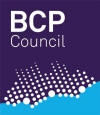Helpful Hints


The first time you hear that you think, “How do I answer that? Where do I begin?” We have far too much information to present it all here and for you still to be awake by the time you get to the end. So here is a general reply. If it doesn’t answer your specific query please contact us and we’ll do our best to point you in the right direction.
The countryside is a large place with an enormous variety of jobs, everything from tree surgeons to rights of way officers by way of wildlife officers not to mention rangers. We recommend that people take a little while to think about exactly what it is they want to do and about how they want to spend their days. Is a job outside in all weathers really the right one for you? Do you have the patience to spend days counting plants or birds or to cope with several classes of small children asking the same questions over and again? Would you get vertigo hanging from ropes at the top of a very tall tree? Can you walk long distances over rough ground carrying a heavy pack? A good way to find out what sorts of jobs there are within the countryside sector is to look at the job adverts, most of which have a brief description of what you’ll be doing and this gives you a rough idea of what the job entails. It is often much better to eliminate jobs you don’t want than to look at the ones you quite fancy this way you’ll reduce the range and focus your efforts much more effectively. Don’t be afraid to have a look at job descriptions on employer's websites this gives you greater details than in the advert; however, please don’t send for application packs for jobs for which you have no intention of applying and for small charities you’re using hard earned funds. If you’re still confused then have a look at CJS Focus, this is a periodic publication each edition looking at a different area of the sector with articles from people working ‘on the ground’ highlighting specific issues.
Once you’ve worked out roughly which sector seems most suitable then a good way to ‘try before you buy’ is to volunteer, we know this is not possible for everyone but even if it’s only for a couple of days you’ll get an idea. By being a volunteer or shadowing someone you get to see the real job, not the pretty version presented in job adverts – recruiters are trying to attract applicants and do talk up the good stuff tending to bypass the not so favourable aspects. Spending time with someone doing the job gives you the opportunity to ask questions (but not too many - remember you’re there to help, not hinder) and maybe ask a few of yourself too. If you discover it’s not for you then don’t worry, a few volunteer days don’t tie you to a career for life.
There are many ways to volunteer, join a work party for a practical day, take part in a survey and help with citizen science, go on a residential holiday or sign up for a longer term placement. Have a look at the organisations offering volunteer opportunities and also read the Focus on Volunteering published every February.
This works whether you’re just starting to think about your future career, newly graduated or looking to change your life. If it is the latter then think about what skills you already possess and can offer a countryside employer and maybe be prepared to try for a job which is not your perfect post but one for which you’re suitable with a countryside employer and then you’ll be better positioned to move sideways.
Look at the adverts, read them carefully. Ask yourself the two cardinal questions:
Is it the job for me?
Do I have the qualities the employer is seeking?
If you answer ‘yes’ to both look at the contact details; most adverts will detail where to obtain further information – follow this exactly, the easiest is usually to look online. Read the job description and person specification and if you can still answer ‘yes’ then it’s time to put pen to paper (or fingers to keyboard). Person Specifications often detail the perfect employee and employers hope for someone to ‘tick’ all the boxes but they are realistic enough to know it’s unlikely to find a 100% match. So if you match the essential qualities and many of the desirable aspects then it’s probably worth applying.
Now comes the really hard bit, writing your application. If it’s online then either print out a blank copy or jot down the questions, this allows you to work on your responses. Name and address should be quite easy but those bigger more vague boxes really deserve your full attention this is where you get the chance to outline exactly why you’re the person they’ve been waiting for. Read the question, think about the job description and then draft a reply. Read it back to yourself, does it really do you justice, cover the points raised and give the recruiter the information they really need? Only when you’re absolutely positive it’s right should you fill it in, if it’s an online form then it’s worth typing your answer in Word to spell check it (in English UK not US) and proof the text. I regularly type fro instead of for and of course the spell check recognises it as a correct word but it makes complete nonsense, not a good impression on an application. If it’s a paper application then check the instructions; for example, does the ink colour matter? If you can photocopy the blank application and make sure you can put all you want to say in the boxes whilst keeping it legible. Once your application is complete save or print out a copy of an online application or take a photocopy of a paper application. Then send it and keep your fingers crossed. It’s helpful to keep your copy of the application, the information received and the original advert together so that if you’re lucky enough to be shortlisted for interview you have all the information together and don’t need to phone us for a duplicate of the advert (you’d be surprised how many people do).
It’s something everyone hates doing – writing your CV, but it really is worth putting in the effort. This is your ‘shop window’ a place to demonstrate all your achievements and outline why you are the person the recruiter has been searching for. A well crafted CV can make the difference between getting an interview or not. Start out with a general document which you can then update and adjust as required.
It’s best to tailor your general document to the specific post making sure you highlight the areas mentioned in the job description and leave out other areas which although they may seem important to you simply take up space and don’t really add anything to your application.
A few general guidelines: A CV should be clearly laid out with bold headings and ideally be no more than two sides of A4.
Don’t include graphics or photos (unless requested).
Don’t go overboard on bold and italics.
Use a clear font, sans serif (like arial) is good, especially if your CV is to be submitted electronically and don’t be tempted to drop the point size just to fit more in – remember quality not quantity.
Don’t title it CV, use your name instead. Likewise for electronic submission save it as your name and perhaps the date if you have lots of different versions (make sure you send the right one!)
Useful headings are:
Contact Details
Personal statement / professional profile or career profile
Qualifications
Experience
Employment History
Hobbies and Interests
References
Contact Details
Name, address, phone numbers (mobile and a land line), your email address all clearly and sensibly laid out.
Personal Statement
Your personal statement is the place to really stand out but keep it relevant an employer doesn’t need to know your whole life history. Ideally a Personal Statement is 5-10 lines and usually reads better in the third person. Mention a little about who you are and how you see yourself progressing the future.
e.g. “Fred is a popular effective ranger with a special talent for problem solving. Having been in an assistant post for 3 years Fred feels ready to take on the challenge of overseeing a small ranger team.”
Professional Profile / Career Statement
This can be included in your personal statement or can be a separate section, again no more than 10 lines ideally.
Here you outline what you have already achieved and where you would like your career to go in the future. It’s important that this section is tailored to the job for which you’re applying. It’s no good saying how you would like to manage a nature reserve if you’re applying to the education team.
Qualifications
Keep to the main relevant qualifications, usually in reverse order, so the most recent first. It’s helpful to split your qualifications into academic and practical / professional. You can mention other qualifications not strictly relevant for the post but demonstrating your personality in the hobbies and interests section.
Experience
This section can be one of the hardest, working out which areas of your
past history to include and which to leave out. For new graduates with
no or only a little experience it can be even more difficult but don’t be
tempted to pad it out to make it look good, be honest. It’s important
to be able to prove your claims. A week long course on survey
techniques does not qualify you to claim you have lots of experience.
If you have been on the course or completed a term as a volunteer keep
records of when, where and what you did especially if the course is not
certified.
Employment History
Like qualifications usually listed in reverse order. Include a little more detail in the areas of your employment record which are relevant to the post. Don’t leave gaps in the history. If you have been out of work emphasise what you’ve done with the time – brushed up on skills, added a new qualification etc. If you’ve had long term sick leave or taken time out to care for relatives or children include it and the basic details eg dates. Any irregularities will set the employer wondering and might just push you into the ‘No’ pile.
Hobbies and Interests
This is the place to outline your off duty activities and interests.
It is often the most revealing part and can be the area which pushes your
application from the maybe into the yes or no piles. Use it to your
advantage to demonstrate a well-rounded personality and highlight skills
which may be useful in your new role. If you’ve held a position of
responsibility in a team or organisation (which you should already have
mentioned) that shows you can organise and get things done which is only to
be expected, however, if you’ve blogged about it mention it here that shows
your IT connections go beyond work skills.
References
Usually the last on your CV. You can include full contact details for your referees or simply their name and organisation stating that references will be provided upon request. It’s worth mentioning why they are your referees, eg a character reference from a voluntary group you’ve previously assisted or a work reference from your current employer. For new graduates include your college tutor or someone who oversaw a project / thesis etc. Don’t include family even if you’ve worked for them. Don’t include copies of already written references with your CV unless specifically requested by the employer.
As with job applications check your spelling and grammar. Get a friend to read it – they know what you’re trying to say but they may read it completely differently from how you intended!
Like all industries, ours has its jargon and buzzwords, ensure you know them and that you understand exactly what each TLA1 means but limit their use to where it’s essential.
(1 look it up)
Finally – Be Careful.
The internet never forgets! So it might worth cleaning up your Facebook profile and checking your tweets. If you refer back to your blog make sure it is suitable for potential employers. In 2011 recruitment agencies admitted they regularly check Facebook profiles. So google yourself and see what come up in the first few results.
On the plus side this can be an appendix to your application showing off all of those things for which there was no space.
LinkedIn is a good way to make contact with people already in the field, get your name known so that when the application is seen an employer might already have some knowledge of you. Likewise interact with groups, staff and whole organisations across the social media spectrum.
Finally the letter arrives inviting you to interview.
Read it carefully and if required acknowledge receipt confirming your attendance. Then get out your copy of your application re-read it and the job description to re-familiarise yourself with what the job entails. Check where the interview will be held, it’s no good going to the reserve if the interview is at headquarters. Ensure you know how to get there, it sounds basic but it’s important. If you’re travelling by public transport check timetables. If you’re driving check parking arrangements, if the site has a car park phone reception to ensure there will spaces available on the day.
If you don’t already know then now is the time for some background reseach into the job, is it a newly funded post, are you taking over from a current employee. Look at the organisation, not just your department, and at how your role will fit into the whole company structure. Think about questions you’re likely to be asked and although you don’t want to sound over-rehearsed practise your answers and practice out loud something that sounds sensible in your head might sound wrong when you come to say the words and it’s better to do that at home rather than stumble in an interview.
An interviewer will often ask if you have any questions for them, prepare a couple in advance. The first one should always be to enquire if there is “anything you would like me to clarify or explain in more detail?” Interviewers are human too and may have a page of scribbled notes that need more detail. You can demonstrate your research here by enquiring, for example, how your role might interact with another project within the organisation.
The day arrives.
Dress smartly and appropriately and that isn’t simply ruling out fancy dress! If you’re getting a guided tour of the site take your waterproofs and boots with you. Take copies of your CV, references and application as well as a notebook and pen showing that you’re organised and taking the interview seriously.
Arrive ten minutes early. If you’re held up do phone to explain; interviewers understand about unforeseen events outside our control and will make allowances as long as you tell them. Don’t arrive in a flap with a flurry of excuses.
Greet everyone with a smile and, if appropriate, a handshake. First impressions do matter.
If you stumble over an answer take a deep breath, apologise and ask if you can start again.
If you’re changing jobs be honest about the reasons but don’t be negative about your current employer or your colleagues it reflects badly on you not them and will make an interviewer think twice about you.
Remain calm and composed.
At the end of the interview don’t bolt for the door, but thank the interviewers for the opportunity and re-iterate your interest in the role.
Fingers crossed you get the job but if you’re unlucky most organisations, not all, will give you feed back if you request it. Before you phone, think over the interview and ask for constructive feedback such as what the interviewer thought you could improve don’t just ask “Why didn’t you give me the job?”, phrase your questions carefully remember you may be back for a different post.
1. Don’t phone or email if it says write.
2. If they ask for a SAE make sure you use the right size envelope with the correct postage.
3. Don’t send your CV unless it’s requested.
4. If there is a contact for informal discussion think about your questions before you pick up the phone.
5. If you phone for further details make sure you leave a clear concise message detailing exactly which post, giving any reference numbers, spell out any unusual words in your address and your post code too, you want the package to reach you and not Fred down the road. It’s helpful if you leave a contact number then if there are any questions the employer can contact you for clarification.
6. Email addresses, many people have a quirky address which makes perfect sense to them but may not be easy for everyone else and your potential employer may think twice about taking on someone with the address fluffybunnies@emailbox
7. This is an application for your perfect job not a text to a friend, so keep it formal.
In September 2021 CJS produced a Focus on Careers in Ecology & Biodiversity which carried a few articles about how to get in to the sector

The Ecology and Environmental sector is extremely diverse with a range of career possibilities. Jobs will typically combine outdoor field work with desk-based work, and the field work could potentially take you anywhere in the world. You could be monitoring climate change on mountains, tracking whales across the oceans or recording insects in the Amazon or you could be getting down to the dirty work measuring sewage outfalls in watercourses! Office work will typically include accurate recording, analysing data and writing reports.

A career in the ecological sciences can be very rewarding, with a wide range of exciting opportunities available within the job sector. Getting onto the career ladder, whether straight from studying or as a career change, can be a challenge and has proved even more so over the last year when opportunities to gain experience have been limited.
Published in February 2021 on the in depth section:

By Carys Evans, Communications and Campaigns Officer for Wildlife Trusts Wales
Having worked in communications and marketing within the conservation sector for the last few years I can safely say that no two days are ever the same! If you’re looking for a non-stop, creative whirlwind of a job then marketing and communications may just be for you!
Published in December 2020 on the in depth section:

In 2019 Ellie Benton-Best & Dr Kayleigh Fawcett Williams from the Career Ecologists group & @KFW.Sci.Create/ surveyed consultant ecologists in two groups. The first was for ecologists up to senior level. We asked them about their personal experiences of development and learning, as well as career progression. The second survey was completed by managers/employers in ecology. In this group were those responsible for teams, hiring, and budgets as well as their field work or specialism. We asked them specifically about hiring, the skills they most look for on their teams, and what they think is missing. The results were fascinating.
Published in October 2019 on the in depth section:

By Brian Heppenstall, Senior Ranger, Hengistbury Head
Brian discusses some of the hurdles to paid employment in the conservation sector and investigates why these are in place and how they can be overcome with the use of better practical experience, course provision, clearer careers advice along with job descriptions and employer expectations.
In September 2019 CJS produced a Focus on Countryside Management which carried a few articles about how to get in to the sector
The perfect Countryside Ranger applicant - is there one? SCRA
Applicant vs employer - the difference of opinion
In November 2018 CJS produced a Focus on Employability, read the great articles covering everything from networking to interview techniques:
Why a hands-on approach to training could benefit your career, Lantra
Our Bright Future: a stepping stone to employment for young people
Tips of the bright green trade - how to maximise your career chances,
Groundwork
Interview Skills, Contract Ecology Ltd
Making the leap into self-employment, Ecology on Demand
In May 2020 Lucy McRobert, former Communications Manager for The Wildlife Trusts and author of 365 Days Wild, gave a Facebook Live session on our pages to talk about careers in the countryside and conservation sectors. The session lasted for around an hour and then Lucy then took questions for another 30 minutes.
It's a fantastic informative resource, super useful and really useful tips were some of the comments from the session. Watch below it below or find it on our facebook page.
NB, just in case all you've got is a blank screen! This is embedded from Facebook it might not show on firefox or if you've got ad blockers enabled you can go straight to the video post on facebook by clicking here.
On 13 January 2021 Richard Dodd from Wildwood Ecology gave an excellent presentation on The Top Five Non-technical Skills That Employers Are Looking For - Identifying and developing the right skillset and mindset for a career as an ecologist.
The video is available on our YouTube channel.
Thanks to Kate and Charles, Rangers from South Downs National Park Authority for their Live Ask the Ranger event in August 2021
In the talk they both revealed how they got on to the career ladder and what their jobs involve. Various questions were answered including can you get into a paid conservation job straight out of university and how easy it to career change in to conservation.
Find out what’s involved in being a Ranger and get the benefit of Kate and Charles’ experience.
Watch the video here